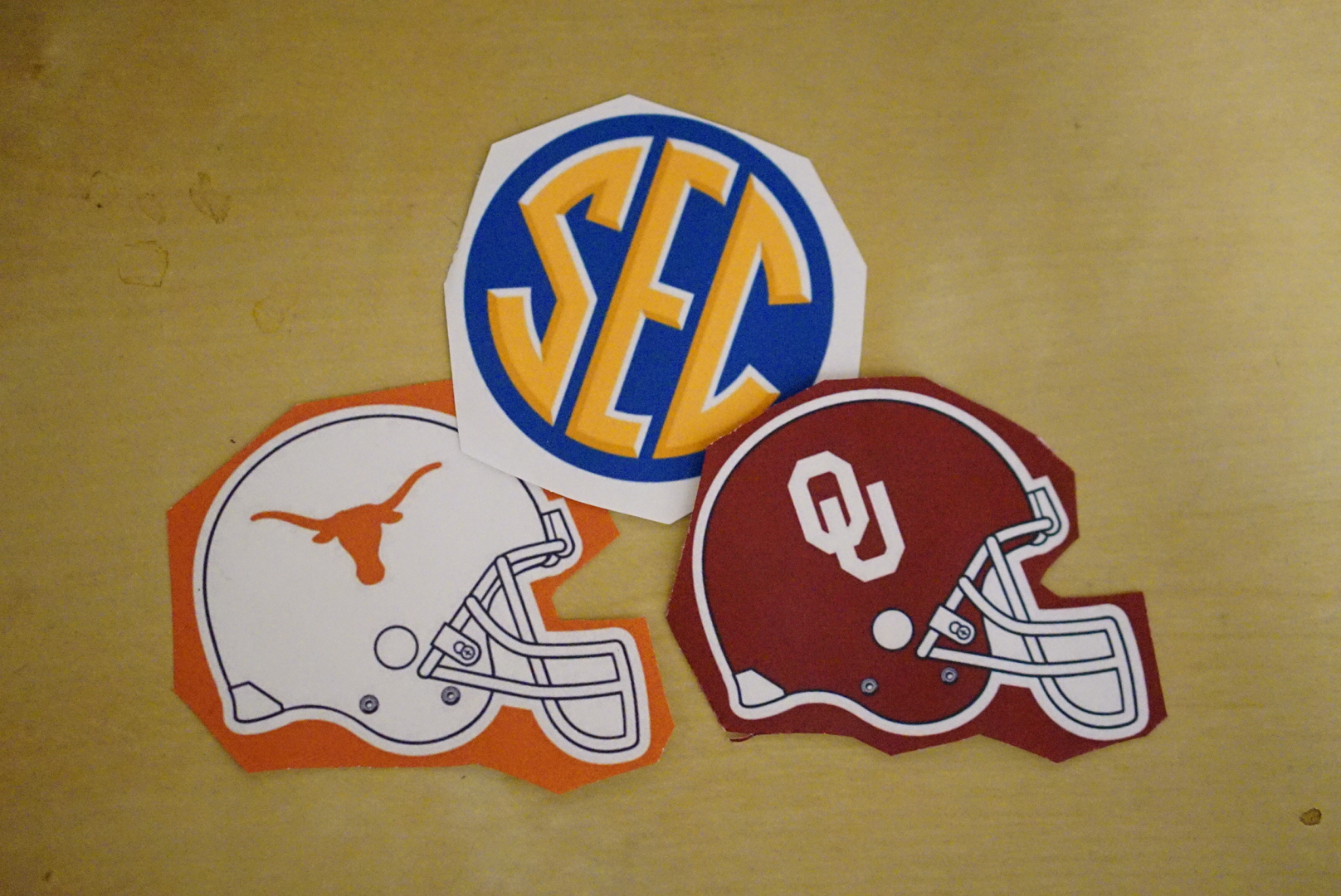The University of Texas and the University of Oklahoma football teams plan on leaving their conference—and have officially accepted invitations from the Southeastern Conference (SEC) to join their conference in 2025. The Texas Longhorns and Oklahoma Sooners are currently in the Big 12 conference and will not be renewing their grants of media rights in 2025, when their contract expires. Both schools border each other with the Longhorns based in Austin, Texas and the Sooners based in Norman, Oklahoma.
In order to leave the Big 12, both Oklahoma and Texas must pay a $76 million buyout to the Big 12. The switch to the SEC will be a dramatic one. With the two powerhouses of the Big 12 leaving, the conference may fold and the eight teams left will have to move to other conferences.
This isn’t the first time the Big 12 has lost schools. The University of Colorado Buffaloes left the conference in 2011 and left for the Pac 12. Historical rivals of Colorado, the Nebraska Cornhuskers, also left in 2011 for the Big Ten conference. The Mizzou Tigers and Texas A&M left in 2012 for the SEC. To make up for their losses, they added Texas Christian University and the Mountaineers of West Virginia to the conference. This resulted in the crumbling Big 12 having 10 schools as we know it today, which now will be back to eight schools when Texas and Oklahoma leave.
The realignment could have other schools thinking they should attempt to make moves, too. The University of Colorado could potentially move to the Big Ten and reignite the old rivalry between Nebraska. Since the other Big 12 schools could be without a conference, the Pac 12, the conference containing Oregon and Oregon State, could potentially grab schools like the Red Raiders of Texas Tech or the Horned Frogs of Texas Christian.
This does not mean that every team has to choose a conference, however. Schools can also be known as independents, meaning they are not owned by any conference, and still be successful. Brigham Young University, which finished their season 11-1, or Liberty, finishing 10-1, are independents. The Notre Dame Fighting Irish became independent in 1978 and has been doing just fine—winning 12 seasons in the last 13 years and winning the national championship in 2012.
Both Texas and Oklahoma have an overall winning record against SEC teams with Oklahoma at 110-49-8 and Texas 191-92-9 all-time against the SEC. Oklahoma ended their season 9-2 last season and won the Big 12 for the sixth consecutive year. The Sooners also have seven national titles as a program. Texas on the other hand ended their season 7-3 and won their 10th bowl game in the last 12 years, in addition to six national titles.
Rivalries will be nothing new to these new schools joining the SEC. The undisputed dynasty of the Alabama Crimson Tide has met Oklahoma multiple times in the playoffs, and now will face off for a potential playoff spot. Texas and Louisiana State have a short history, but a tight one. The Longhorns lead the all-time series 9-8-1. When the Texas A&M Aggies left the Big 12 in 2011, their 127-year-old rivalry with Texas slowly died out. The Longhorns owned the Aggies in the series all-time 76-37-5. Maybe there was a reason why the Texas A&M left.
What does all of this realignment mean for Portland State football? Nothing much. The Viks have only played one Big 12 school and one SEC school since 2003. The last game was a close battle in 2019, with SEC school Arkansas, losing 20-13, shy of one touchdown to tie the game. While both play Division I football, PSU is in the Big Sky conference which is a different subdivision than the SEC and Big 12, therefore, they do not play each other often.
The SEC is already a strong conference with teams like 13-0 Alabama Crimson Tide, 9-1 Texas A&M Aggies, 8-2 Georgia Bulldogs and 8-4 Florida Gators. This will make the SEC expand from 14 schools to 16. Oklahoma and Texas will fit in perfectly with their rekindled rivalries and dominance over many schools.
These changes could lead to possible changes to the college football system, like how the playoffs are held. Instead of four schools in the playoffs, usually one team representing their conference, they may expand it to eight—or maybe more—to recognize the talent of other schools. Having one school represent the SEC would seem unfair, but it’s also unfair to have the SEC to dominate the playoffs. But we don’t have to worry about that until 2025. Texas and Oklahoma are changing the stage and the future of college football, maybe for good.



